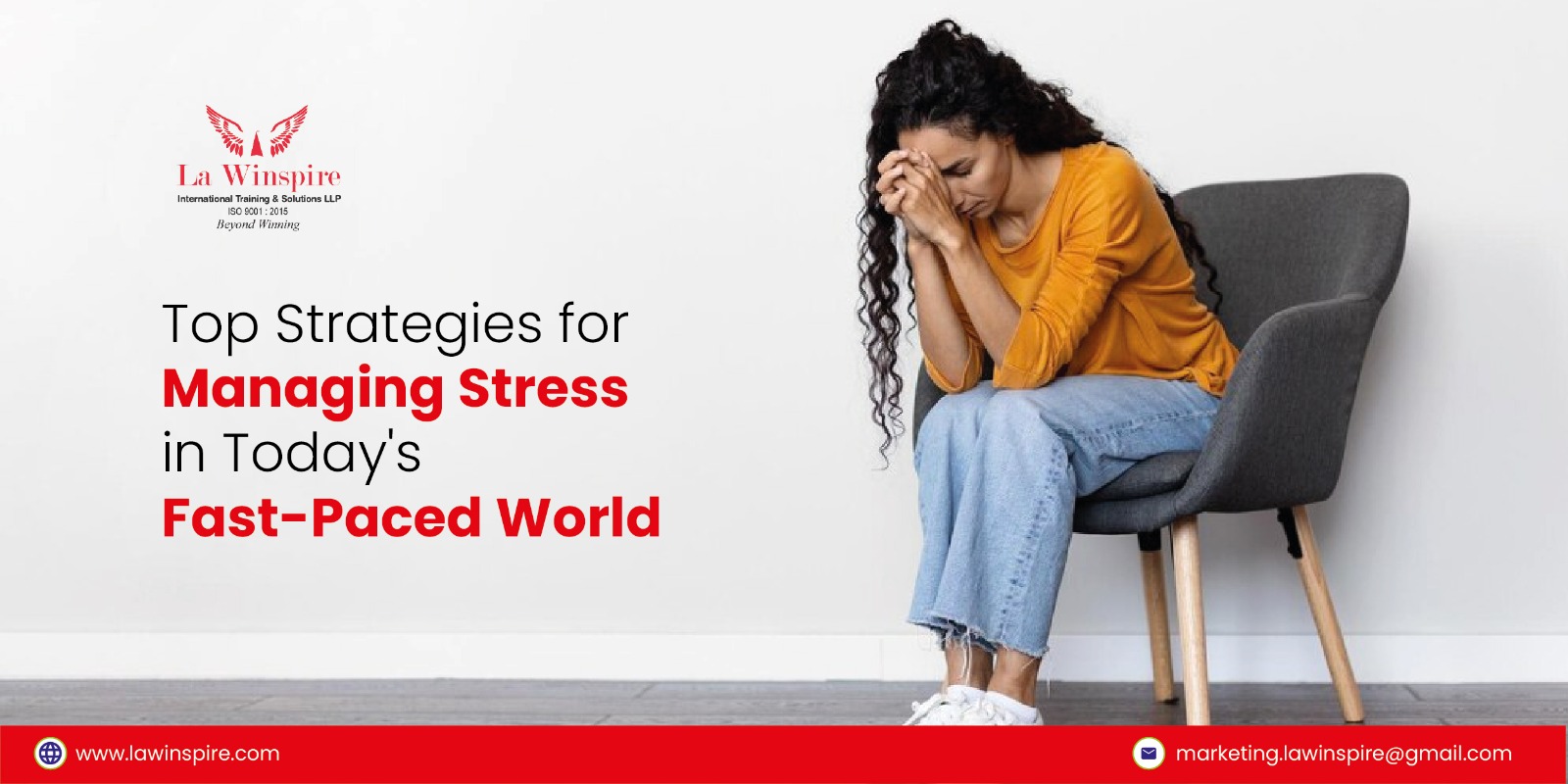In our modern society, stress has become a constant companion. Whether you’re a busy professional, a law student preparing for exams, or a parent juggling responsibilities, the pressure of daily life can feel overwhelming. Managing stress effectively is not just about staying productive—it’s about safeguarding your mental and emotional well-being.
At Law Inspire, we understand that in a fast-paced world, mental clarity and emotional balance are crucial. This blog explores top strategies for managing stress, offering practical tips grounded in science and real-life application.
Understanding the Impact of a Fast-Paced Lifestyle
Our digital, always-on culture encourages hustle, but it often comes at a cost. Constant connectivity, looming deadlines, and societal expectations can lead to burnout. The fast-paced lifestyle stress many of us face impacts not just our productivity but also our physical and mental health.
Symptoms of chronic stress include:
- Fatigue and irritability
- Difficulty concentrating
- Sleep disturbances
- Physical issues like headaches or high blood pressure
Recognizing these signs early is a vital step toward managing stress before it escalates into serious health concerns.
1. Prioritize and Plan for Balance
One of the core stress management techniques is learning how to prioritize. Not every task is urgent. The Eisenhower Matrix, for instance, helps categorize tasks based on urgency and importance, which can prevent mental overload.
Work-life balance is a buzzword for a reason—it’s essential. Creating clear boundaries between work and personal life ensures you have time to rest and reset. Use planners, digital calendars, or time-blocking apps to help structure your day more effectively.
2. Practice Mindfulness and Meditation

Mindfulness for stress is one of the most effective and research-backed tools available. Simple practices like conscious breathing, body scans, or guided meditations can significantly reduce anxiety and improve focus.
Apps like Headspace or Calm offer structured meditation programs tailored for beginners. Incorporating just 10 minutes of mindfulness into your daily routine can drastically shift your mindset and aid in coping with stress.
3. Embrace Physical Activity
Movement is medicine. Regular exercise boosts endorphins, your brain’s feel-good neurotransmitters, and acts as a natural stress reliever.
You don’t need a gym membership—take a brisk walk, follow a YouTube yoga video, or try at-home strength workouts. Physical activity also improves sleep quality and promotes overall well-being, both of which are crucial for managing stress effectively.
4. Learn Relaxation Methods That Work for You
There’s no one-size-fits-all when it comes to relaxation methods. Some people find peace in music, others in reading or journaling. Techniques like progressive muscle relaxation, aromatherapy, or even creative hobbies like painting can provide powerful relief.
Experiment with different stress reduction strategies until you find what truly helps you unwind.
5. Connect and Communicate
Social support plays a vital role in how to reduce stress. Whether it’s talking to a friend, joining a support group, or working with a therapist, sharing what you’re going through can ease the emotional burden.
Legal professionals and students, in particular, often suffer in silence due to high expectations. Prioritize open communication and don’t hesitate to seek help when needed.
6. Develop a Healthy Routine
A consistent daily routine can be a game-changer for daily stress relief. Waking up and going to bed at the same time, eating balanced meals, and scheduling downtime gives your brain the predictability it craves.
Avoid multitasking and give your full attention to one task at a time. This can significantly reduce mental clutter and improve performance—especially helpful when you’re balancing heavy academic or professional workloads.
7. Focus on Nutrition and Sleep
What you eat and how you rest significantly affect your stress levels. Caffeine, sugar, and processed foods can spike anxiety, while a balanced diet rich in whole foods stabilizes mood.
Likewise, aim for 7–9 hours of sleep per night. A solid sleep schedule allows the brain to recover and process emotions more efficiently, aiding in managing stress long-term.
8. Set Boundaries with Technology
Notifications, emails, and endless scrolling can sabotage peace of mind. Consider setting screen time limits or establishing tech-free zones in your home.
Digital detoxes—even for just one hour a day—can improve focus, lower anxiety, and promote mental clarity. This is especially crucial for professionals in high-demand roles like law, where overstimulation can quickly lead to burnout.
9. Seek Professional Guidance
Sometimes, DIY strategies aren’t enough. Don’t hesitate to seek professional counseling or coaching. There’s strength in recognizing when you need help. Therapists trained in stress management techniques can offer tools tailored to your specific situation.
Many universities and workplaces offer mental health resources, and teletherapy platforms have made accessing support easier than ever.
10. Cultivate a Growth Mindset
Last but not least, mindset matters. Instead of seeing challenges as threats, view them as opportunities to grow. A growth mindset not only boosts resilience but also enhances your ability to adapt to change—a vital trait when coping with stress in today’s world.
Why Managing Stress Matters for Legal Professionals
At Law Inspire, we cater to individuals in high-pressure environments, including legal students, aspiring attorneys, and working professionals. For these individuals, managing stress isn’t optional—it’s essential.
Stress can impair critical thinking, decision-making, and client relationships. Cultivating balance and emotional intelligence ensures you perform at your best while maintaining mental health and avoiding long-term burnout.
Final Thoughts
Stress is a reality we all face, but how we deal with it makes all the difference. Through intentional routines, healthy boundaries, supportive relationships, and mindfulness, you can build a toolbox of effective stress reduction strategies.
Remember, managing stress is not a one-time fix—it’s an ongoing commitment to your well-being. Start with small steps, stay consistent, and don’t hesitate to ask for help when you need it.
By integrating these proven approaches into your lifestyle, you’ll not only survive the fast pace of today’s world—you’ll thrive in it.
Explore More on Law Inspire
Looking for more insights on mental wellness, career balance, and personal development in the legal field? Browse our blog for actionable advice tailored to your journey. Your well-being is your greatest asset—nurture it wisely.




0 Comments